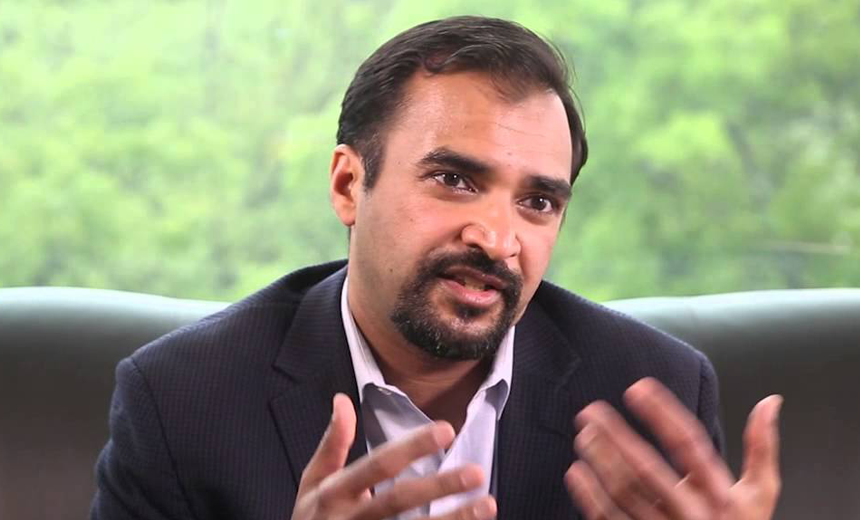
Boards: Save an Extra Seat for the General Counsel
Boards: Save an Extra Seat for the General Counsel https://csuiteold.c-suitenetwork.com/wp-content/uploads/2014/12/2562804880_97c67abb9e_z.jpg 640 480 C-Suite Network https://csuiteold.c-suitenetwork.com/wp-content/uploads/2014/12/2562804880_97c67abb9e_z.jpgby Victoria Reese
In a time of increased shareholder activism, regulation and risk, the role of the general counsel in the corporate boardroom has never been more important. Yet, companies have been slow to recruit general counsels or seasoned attorneys to serve as independent directors. Among the nearly 3,900 independent directors of publicly traded Fortune 500 companies, just 4.5 percent are or have been general counsels.
Why such low representation? Some of it is based on shaky logic. “We already have a GC in the room,” goes one argument. “We don’t need another one.” Most boards already have the benefit from the company’s CFO in the board room, but that doesn’t deter them from recruiting outside CFOs to serve as independent directors. In fact, CFOs and former CFOs account for 17.6 percent of board seats among the Fortune 500. Though some of the relative over-representation of CFOs compared with GCs can be accounted for by the Sarbanes-Oxley requirement that a Board’s audit committee include at least one “financial expert,” the unique experience of a GC is clearly undervalued when considering new candidates.
Today’s GC is neither just another lawyer nor less skilled than top attorneys at major law firms. General counsels have risen to a new level of responsibility in the past 15 years, becoming their companies’ first lines of defense, proactively looking over the hill and acting as strategic business partners. During this time of regulatory scrutiny, the role has evolved to include responsibilities that make GCs, including retired GCs, ideal board candidates.
A recent study by Heidrick & Struggles of general counsels currently sitting on corporate boards offers one indicator of the heightened role. Virtually all of them attained the status of strategic business partner with their CEOs. They play a particularly valuable role in company success when it comes to risk — legal, regulatory, reputational, financial and operational — not only in the home country, but around the world. Today’s GC is central in determining where the company faces risk, how multiple risks interact and how those risks can be mitigated.
Rather than simply controlling every risk at the expense of the organization’s mission, these business-savvy GCs operate within a framework of acceptable risk, helping the CEO weigh the benefits and drawbacks of different courses of action. In working with other members of the senior executive team, these strategic-minded GCs are brought into discussions of major initiatives at their inception.
Most of the general counsels studied have experience directing government relations. In an environment of increasing regulation — most notably financial services, healthcare and energy — the ability to navigate Washington is in high demand. These government-savvy general counsels know how to interact with policy makers and regulators and translate government policy into business implications. They stay abreast of any pending legislation — domestic and global — so that the company can develop compliance strategies well in advance.
Further, GCs in multinational corporations work in far more complex operating environments than ever before, requiring skills that translate directly to today’s boardroom:
- Globalization has given them an international outlook, a sine qua non of board service now. Globally minded GCs skillfully manage the legal complexities of international operations, tax laws and labor laws, as well as laws like the U.S. Foreign Corrupt Practices Act and the UK’s Bribery Act.
- The complexities of IP in an age of rapidly changing technology, fierce competition and sophisticated theft have put GCs on the front lines of intense competitive battles. They must not only defend IP but also integrate legal, technological, and business knowledge to help drive competitive advantage.
- Further complexity has arrived in the form of issues that moved to the front-burner in recent years — cybersecurity, privacy, diversity and shareholder activism — broadening the role of GC.
Taken together, the new responsibilities that GCs in multinational corporations have acquired add up to the same competencies that boards look for in any director: strategic ability, business acumen, global orientation and experience with today’s most burning issues for boards.
Inherent to the role of general counsel is a relationship particularly relevant to board service: The GC’s client is the corporation as a whole. Like independent directors, the GC must have a strong relationship with the CEO, while putting the overall best interests of the company first.
Additionally, the caliber of GCs has never been higher. Because the role has become so multifaceted, it has increasingly attracted the best and brightest. Top performers in law firms and government, as well as corporate incumbents, are drawn to a role that will allow them to exercise the full range of interests and skills acquired over their careers.
Still, directors with GC experience remain under-represented on boards despite these compelling advantages. Exposure, it appears, is critical.
 Victoria Reese is the global head of Heidrick & Struggles’ Legal, Risk, Compliance & Government Affairs Practice based in New York. Her recent placements include general counsels, compliance officers, corporate secretaries, governance officers, other high-level internal legal officers and related infrastructure positions. In addition to large financial institutions and corporations, Victoria has worked extensively with hedge funds and other investment management companies. She regularly speaks at conferences and symposia regarding the legal and search industries and has published articles on leadership trends, marketing in professional services firms and the attraction and retention of top talent.
Victoria Reese is the global head of Heidrick & Struggles’ Legal, Risk, Compliance & Government Affairs Practice based in New York. Her recent placements include general counsels, compliance officers, corporate secretaries, governance officers, other high-level internal legal officers and related infrastructure positions. In addition to large financial institutions and corporations, Victoria has worked extensively with hedge funds and other investment management companies. She regularly speaks at conferences and symposia regarding the legal and search industries and has published articles on leadership trends, marketing in professional services firms and the attraction and retention of top talent.




